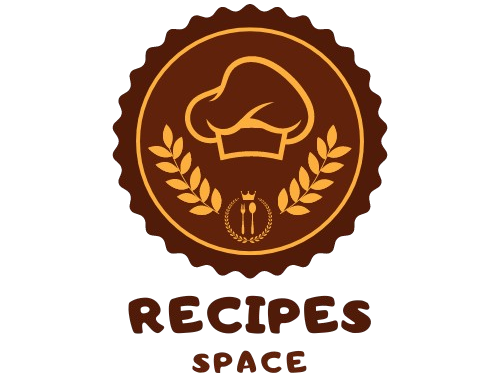Many bakers discard a portion of sourdough starter before feeding it, often considering it waste. However, this sourdough discard can be used in various recipes, raising the question: Is eating sourdough discard healthy? Let’s explore the nutritional benefits, potential risks, and ways to incorporate sourdough discard into your diet.

What is Sourdough Discard?
Sourdough discard is the leftover portion of sourdough starter that bakers remove to prevent the starter from becoming too large. Discarded daily, sourdough discard can be saved for other uses instead of being thrown away. It contains flour, water, and the same beneficial microorganisms (lactic acid bacteria and yeast) found in the sourdough starter.
Nutritional Profile of Sourdough Discard
Sourdough discard is not just waste; it offers several nutrients that contribute to a healthy diet:
- Carbohydrates provide a quick energy source.
- Protein comes primarily from the flour used in the starter.
- Beneficial microorganisms like lactic acid bacteria and yeast improve digestion and gut health due to their probiotic properties.
For a deeper understanding of sourdough discard and its creation, check out King Arthur Baking’s guide on sourdough discard.
Potential Health Benefits of Eating Sourdough Discard
Eating sourdough discard can offer several health benefits:
- Improved Gut Health: The fermentation process increases probiotics, which enhance gut health by balancing the microbiome. Learn more about these benefits in the Sourdough Discard 101 Guide.
- Lower Glycemic Index: Foods made with sourdough discard have a lower glycemic index compared to those made with regular flour, leading to more gradual blood sugar increases.
- Rich in Vitamins and Minerals: The fermentation process boosts the bioavailability of nutrients in the flour, making vitamins and minerals more accessible.
Discover more ways to use sourdough discard by exploring the Ultimate Guide to Sourdough Discard Recipes on RecipeSpace.
Risks and Concerns of Eating Sourdough Discard
While sourdough discard offers benefits, it also comes with some risks:
- Harmful Bacteria: Improper storage can lead to harmful bacteria growth, posing a risk of foodborne illness.
- Gluten Content: Sourdough discard contains gluten, which may not suit those with celiac disease or gluten sensitivities.
- Acidity Concerns: The acidic nature of sourdough discard could affect tooth enamel if consumed frequently without proper oral hygiene.
How to Use Sourdough Discard in Recipes
Sourdough discard can enhance your cooking and baking in healthy, creative ways:
- Pancakes and Waffles: Sourdough discard adds a tangy flavor and fluffy texture to pancakes and waffles, making breakfast nutritious and delicious.
- Crackers and Flatbreads: Use discard to make healthy, crunchy snacks like crackers and flatbreads.
- Muffins and Quick Breads: Sourdough discard increases moisture and flavor in muffins and quick breads, boosting their nutritional profile.
For a variety of healthy sourdough discard recipes, visit Farmhouse on Boone’s collection. You can also explore more ideas in What Can You Do with Sourdough Discard?.
Comparing Sourdough Discard with Other Types of Discard
Sourdough discard stands out from other types of dough discard. Its fermentation process increases beneficial bacteria, making it potentially healthier than discards from non-fermented doughs. This advantage of fermented foods can offer more health benefits by improving digestion and nutrient absorption.
Sustainability and Environmental Benefits
Using sourdough discard benefits your health and the environment. Utilizing discard reduces food waste and makes baking practices more sustainable. It’s a simple step toward minimizing waste in the kitchen, aligning with environmentally conscious practices.
Expert Opinions
Nutritionists and fermentation experts believe sourdough discard can be a healthy addition to your diet when used properly. They emphasize the importance of proper storage and handling to avoid potential health risks and suggest moderation to maximize benefits while minimizing exposure to gluten and acidity.
FAQs About Sourdough Discard
Is eating sourdough discard good for gut health?
Yes, sourdough discard can benefit gut health due to its probiotic content from fermentation.
Can sourdough discard be used in gluten-free diets?
No, sourdough discard contains gluten. It is unsuitable for gluten-free diets unless you use a gluten-free starter.
What are the best ways to store sourdough discard?
Store sourdough discard in an airtight container in the refrigerator to prevent harmful bacteria growth.
How often should you use sourdough discard?
There are no strict rules, but using it once a week in various recipes is a good practice to reduce waste and benefit from its nutritional content.
Can sourdough discard go bad?
Yes, sourdough discard can spoil if left at room temperature or improperly stored and should not be consumed.
Conclusion
Eating sourdough discard can be healthy when done correctly. It offers several health benefits due to its probiotic content and fermentation process. However, consume it with caution, especially if you have gluten sensitivity or concerns about acidity. With proper storage and preparation, sourdough discard can be a nutritious and sustainable addition to your diet.

1 thought on “Is Eating Sourdough Discard Healthy?”